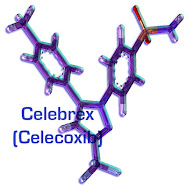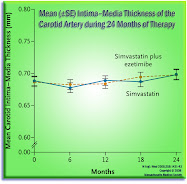We will follow up, when results are released, in a peer reviewed process, or journal article. Good news for Rahway -- and. . . without further ado, here's the latest bit:
. . .The trial, which began enrollment on Monday, will assess the combination therapy's impact on progression-free survival and overall survival in approximately 600 patients worldwide. These patients have not received prior treatment and have tumors harboring KRAS G12C mutations with PD-L1 expression levels of 50% or higher.
Merck's decision to proceed with a larger Phase 3 trial follows promising early results from a Phase 1 study, indicating that the MK-1084 and KEYTRUDA combination had a manageable safety profile and showed potential in tumor reduction. Dr. Marjorie Green, senior vice president and head of oncology global clinical development at Merck Research Laboratories, emphasized the significance of targeting KRAS G12C mutations, which are prevalent in NSCLC cases.
Lung cancer remains the leading cause of cancer-related deaths worldwide. Despite advances in early detection, screening, and new therapies, the five-year survival rate in the United States is only 25%. Merck's latest trial is part of its ongoing commitment to improving outcomes for lung cancer patients through extensive research and clinical trials. . . .
Obviously, if these trials prove out -- the combo package becomes a very legit way to extend the life of Keytruda's exclusivity in the oncology markets, world-wide -- for those (relatively few, in terms of the globe's annual income levels per patient) that are able to afford the therapy.
Now you know. Onward, grinning -- no snow, just rain now -- and I've got Seton Hall in the NIT final tonight.
नमस्ते


















4 comments:
Interesting comment about the phase I trials.
Many years ago in the mid-80's my interest was in oncology drugs.
I remember a major researcher with the Southwest Oncology Group claim that every cancer drug that ever made it to market showed evidence of efficacy in the phase I trials.
It is. . . ironic. . . since Phase I is only about safety.
But there are, in truth, occasionally. . . some tea leaves about whether there have been improvements in patients' conditions.
But that said, yes, the statements today (above) from Rahway. . . are mostly marketing fluff.
Grant addition, here Anon.
Thanks!
While Phase 1 is about safety it's also about pharmacokinetics and gross pharmacodynamics (i.e., information on dose or exposure and toxicities). All of which are used in tandem to guide further dosing and development including of the type of formulation used.
Oncology however is unique. As usually phase 1 studies are conducted in healthy volunteers.
However, as cancer drugs are generally too dangerous to give to healthy volunteers, cancer patients are used instead.
These are often those patients who haven't responded to treatment and so they have no option but to risk their remaining life for the benefit of others. In such a scenario, if a drug shows any degree of effect at all then it's likely to be more effective in patients whose disease hasn't progressed and haven't received other drugs or developed resistance yet.
Good point, Anon. No. 2. . . .
And, a very useful addition!
Namaste. . . .
Post a Comment